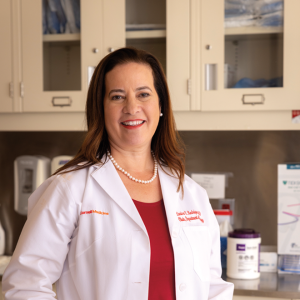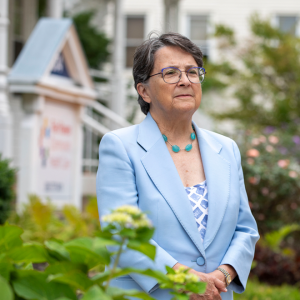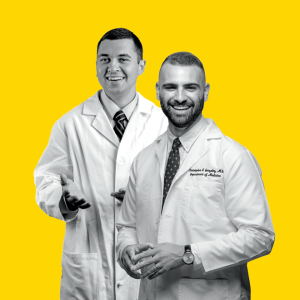77% Increase in the Use of Biologic Drugs
This overall increase was found in hospitals participating in the 340B Drug Pricing Program, a large federal safety net program, according to a new study by Weill Cornell Medicine, NYU Grossman School of Medicine and University of Miami investigators. It found that hospitals are financially incentivized to prescribe original biologic drugs to prevent and treat diseases in lieu of cheaper generic-like alternatives called biosimilar medications.
Biologic drugs, which are produced in living cells, are more costly to produce than other types of drugs due to the complexity of manufacturing and contribute to significant growth in health-care drug spending.
The study, published in Health Affairs, investigated whether the structure of the drug pricing program inhibits the use of biosimilar medications, which are medically equivalent but not identical to original biologic drugs due to production differences.
The 340B program, which includes nearly one-third of hospitals in the United States, is intended for hospitals and clinics serving large numbers of low-income and uninsured patients to purchase discounted outpatient prescription drugs. Drugs purchased at the 340B discount price can be administered to a broad set of patients, including Medicare enrollees, regardless of income or the ability to pay.
Study co-leader Dr. Amelia Bond, an assistant professor of population health sciences, attributed the higher use of biologic medications in 340B hospitals to manufacturer discounts these hospitals receive on purchases of drugs, which includes a guaranteed 22.5% list price discount and additional discounts when a manufacturer raises prices above inflation.
4 Subtypes
People with autism spectrum disorder can be classified into four distinct subtypes based on their brain activity and behavior, according to a study from Weill Cornell Medicine investigators.
The study, published in Nature Neuroscience, leveraged machine learning to analyze newly available neuroimaging data from 299 people with autism and 907 neurotypical people. Researchers found patterns of brain connections linked with behavioral traits in people with autism, such as verbal ability, social affect, and repetitive or stereotypic behaviors. They confirmed that the four autism subgroups could also be replicated in a separate dataset and showed that differences in regional gene expression and protein-protein interactions explain the brain and behavioral differences.
“[As with] many neuropsychiatric diagnoses, individuals with autism spectrum disorder experience many different types of difficulties with social interaction, communication and repetitive behaviors. Scientists believe there are probably many different types of autism spectrum disorder that might require different treatments, but there is no consensus on how to define them,” says co-senior author Dr. Conor Liston, a professor of psychiatry and of neuroscience in the Feil Family Brain and Mind Research Institute at Weill Cornell Medicine. “Our work highlights a new approach to discovering subtypes of autism that might one day lead to new approaches for diagnosis and treatment.”
HIV Patients Fare Well with Mpox Treatment
 Patients with HIV had similar treatment outcomes to patients without HIV when treated for mpox with an antiviral drug called tecovirimat, according to a study by a team of investigators from Weill Cornell Medicine, Columbia University Vagelos College of Physicians and Surgeons and NewYork-Presbyterian.
Patients with HIV had similar treatment outcomes to patients without HIV when treated for mpox with an antiviral drug called tecovirimat, according to a study by a team of investigators from Weill Cornell Medicine, Columbia University Vagelos College of Physicians and Surgeons and NewYork-Presbyterian.
The results of the study, published in the Annals of Internal Medicine, provide preliminary evidence of the safety and efficacy of the drug in those living with HIV. The investigators analyzed electronic health record data from 154 patients, including 72 patients with HIV, treated with tecovirimat for mpox at NewYork-Presbyterian/Weill Cornell Medical Center and NewYork-Presbyterian/Columbia University Irving Medical Center between late June and August of 2022 amid a global mpox outbreak.
“People with well-controlled HIV did not have any safety issues with treatment with tecovirimat and responded similarly to patients without HIV,” says co-senior author Dr. Marshall Glesby, professor of medicine and of population health sciences at Weill Cornell Medicine, and an infectious disease specialist at NewYork-Presbyterian/Weill Cornell Medical Center. Dr. Jason Zucker, an assistant professor of medicine at Columbia University Vagelos College of Physicians and Surgeons and an infectious disease specialist at NewYork-Presbyterian/Columbia University Irving Medical Center, was co-senior author of the study.
Complex Shapes, New Functions
 DNA can mimic protein functions by folding into elaborate, three-dimensional structures, according to a study from researchers at Weill Cornell Medicine and the National Heart, Lung, and Blood Institute, part of the National Institutes of Health.
DNA can mimic protein functions by folding into elaborate, three-dimensional structures, according to a study from researchers at Weill Cornell Medicine and the National Heart, Lung, and Blood Institute, part of the National Institutes of Health.
In the study, published in Nature, the researchers used high-resolution imaging techniques to reveal the novel and complex structure of a DNA molecule they created that mimics the activity of a protein called green fluorescent protein (GFP). GFP, which was derived from jellyfish, has become an important laboratory tool, functioning as a fluorescent tag or beacon in cells.
The findings advance the science of how DNA can be made to fold into complex shapes, and will help researchers build such DNA molecules for a variety of laboratory and clinical applications. An all-DNA fluorescent tag that mimics GFP, for example, would often be ideal for labeling targeted pieces of DNA in biological studies and in diagnostic test kits, and would be relatively inexpensive to make.
“These findings really change our understanding of what we can do with DNA,” says study co-author Dr. Samie Jaffrey, the Greenberg-Starr Professor and a professor of pharmacology.
























